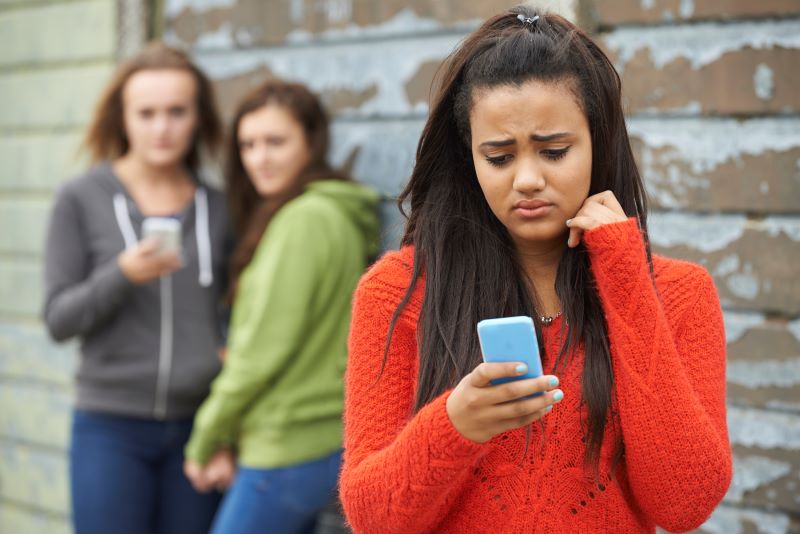It’s Bullying Prevention Month: Tips to Support Your Kids
Bullying is when a person or group repeatedly tries to harm someone who is weaker or who they think is weaker, and there is some type of power differential in place. This can take a psychological toll on the child being bullied, sometimes lasting a lifetime.
October is Bullying Prevention Month
Below are answers to some of the most common questions we receive at the Johns Hopkins All Children’s Hospital Adolescent and Young Adult Specialty Clinic to help parents address bullying and help kids and teens overcome the fear of these attacks.
What are examples of bullying?
It can involve direct attacks such as hitting, name calling, teasing or taunting, but it also includes spreading rumors or trying to make others reject someone.
What are the effects of bullying?
Bullying is harmful. It can lead children and teenagers to feeling tense, afraid and wanting to avoid school. In severe cases, teens who are bullied may feel they need to take drastic measures or react violently. Some even consider suicide.
The effects of bullying can last a lifetime, and lead to anxiety, fear, withdrawal, low self-esteem, and poor concentration, as well as lower school grades and social isolation.
How is cyberbullying different?
Cyberbullying includes sending hurtful or threatening emails or instant messages, or spreading rumors or posting embarrassing photos of others on social media.
What are signs my child is being bullied?
Look for any changes in your child, however, not all children who are bullied exhibit warning signs. Some signs may include:
- Unexplainable injuries
- Lost or destroyed clothing, books, electronics or jewelry
- Frequent headaches or stomach aches, feeling sick or faking illness
- Changes in eating habits, like suddenly skipping meals or binge eating. Kids may come home from school hungry because they did not eat lunch
- Difficulty sleeping or frequent nightmares
- Declining grades, loss of interest in schoolwork, or not wanting to go to school
- Sudden loss of friends or avoidance of social situations
- Feelings of helplessness or decreased self-esteem
- Self-destructive behaviors such as running away from home, harming themselves or talking about suicide
How can I talk to my child about bullying?
Share with your child that the first line of defense is to ignore the bully. Encourage your child to have a companion or peer, as a bully is less likely to address two or more children. Maintain open communication at home, with times each day where children are being heard by parents, and parents can recognize a change in a child’s behavior, interests or emotional/psychological functioning.
When should I talk to the school?
When you have concerns about any bullying or teasing, it is time to talk to the teacher, counselor and/or principal. Positive behavioral interventions and support, as well as social-emotional learning programs are key interventions that should be in place.
All states have enacted anti-bullying laws, and when a school has an anti-bullying program, bullying is reduced by 50 percent.
For more information about supporting your child, visit the Johns Hopkins All Children’s Hospital Adolescent and Young Adult Specialty Clinic.

Dr. Reese is the director of the Adolescent and Young Adult Specialty Clinic within the Division of General Pediatrics and Adolescent Medicine. She is also the adolescent medicine rotation director for the pediatric residency program. She joined the Johns Hopkins All Children's medical staff in 2016 and serves as a full-time assistant professor of pediatrics in the Johns Hopkins University School of Medicine. Dr. Reese’s clinical interests include reproductive health and mental health, and her research focuses are medical education and curriculum development in adolescent mental health and depression. She is an active member of the Society for Adolescent Health and Medicine, where she also serves as the secretary for the southeast United States region.
*Presented by Johns Hopkins All Children's Hospital | Getty Image # 473292366


